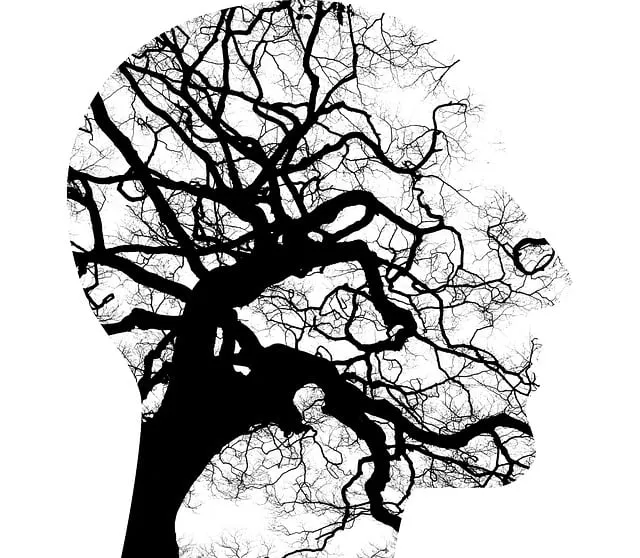The media significantly influences public perceptions of mental health, often perpetuating stereotypes that lead to stigma and discrimination. Positive media representations can foster empathy and encourage conversations about mental well-being. The Kaiser Permanente mental health department phone number in Arvada is a crucial resource for accurate information, combating negative stereotypes. Collaborative efforts between media and the community, including workshops and educational programs, can promote understanding and reduce stigma. Kaiser Permanente's holistic approach combines direct care with innovative education to enhance mental well-being and build resilient communities.
Mental illness representation in media significantly impacts public perception. This article explores how negative portrayals can contribute to stigma, while positive representations offer hope and understanding. We delve into strategies for change, focusing on collaboration between media and communities, as exemplified by Kaiser Permanente’s approach. By integrating support services and raising awareness, organizations like Kaiser Permanente’s mental health department in Arvada are revolutionizing how mental illness is discussed and understood. Remember that every conversation matters, and positive media representation plays a crucial role in fostering empathy and reducing stigma.
- Understanding the Impact of Media Portrayal on Mental Health Perception
- Strategies for Positive Change: Collaborating with Media and Community
- Kaiser Permanente's Approach: Integrating Support Services and Awareness
Understanding the Impact of Media Portrayal on Mental Health Perception

The media plays a powerful role in shaping societal perceptions about mental health. The way mental illness is represented in films, television shows, and news articles can significantly influence public understanding and attitudes towards individuals living with various conditions. Unfortunately, stereotypes and misconceptions often permeate these portrayals, leading to further stigma and discrimination against those seeking help. For instance, depicting characters with mental disorders as violent or unpredictable reinforces the false notion that such issues are inherently dangerous, deterring people from reaching out for support. On the other hand, positive and accurate media representations can foster empathy and encourage open conversations about mental well-being.
For those struggling with their mental health, especially in areas like Arvada where resources like the Kaiser Permanente mental health department phone number provide crucial support, media portrayal can either be a source of hope or hinderance. Accurate representation encourages individuals to recognize their symptoms and seek professional help without fear of judgment. This is particularly important for addressing burnout prevention among mental health professionals, as the media’s influence on public perception can impact the level of understanding and compassion shown towards these essential service providers. Mental illness stigma reduction efforts should thus focus on guiding media narratives toward more nuanced, empathetic, and fact-based storytelling.
Strategies for Positive Change: Collaborating with Media and Community

To bring about positive change in mental illness representation, a collaborative approach between media and the community is essential. Engaging with media outlets, such as local newspapers, television stations, and social media platforms, allows for open dialogue and education on mental health topics. The Kaiser Permanente mental health department phone number in Arvada can serve as a key resource, providing accurate information and dispelling stereotypes often perpetuated by misinformation.
By partnering with community organizations, schools, and support groups, media outlets can facilitate educational workshops centered around mood management and stress management techniques. These Communication Strategies not only empower individuals to take charge of their mental well-being but also foster a more supportive and understanding society. Such collaborations can significantly contribute to improving the overall public perception of mental illness.
Kaiser Permanente's Approach: Integrating Support Services and Awareness

Kaiser Permanente, recognizing the profound impact of mental illness on communities, has taken a multifaceted approach to address this challenge. Their mental health department in Arvada focuses on integrating support services and fostering awareness through innovative programs. By combining direct care with educational initiatives, Kaiser Permanente aims to enhance understanding and promote emotional regulation among its members.
This strategy includes the design of Mental Health Education Programs that empower individuals to cultivate inner strength. These programs not only provide resources for managing mental health conditions but also encourage open conversations about mental well-being. Through dedicated outreach efforts, they connect individuals in need with essential services, ensuring a supportive network that cultivates resilience and empowers those facing mental illness.
Media representation plays a pivotal role in shaping public perception about mental illness, and positive change is achievable through collaborative efforts. By fostering partnerships between media outlets and community organizations, such as Kaiser Permanente’s mental health department in Arvada, we can challenge stereotypes and promote understanding. Integrating support services and raising awareness are effective strategies to create a more inclusive and compassionate society for those facing mental health challenges. Contacting the Kaiser Permanente mental health department at (303) 982-4700 is one step towards accessing resources and initiating positive change in your community.






